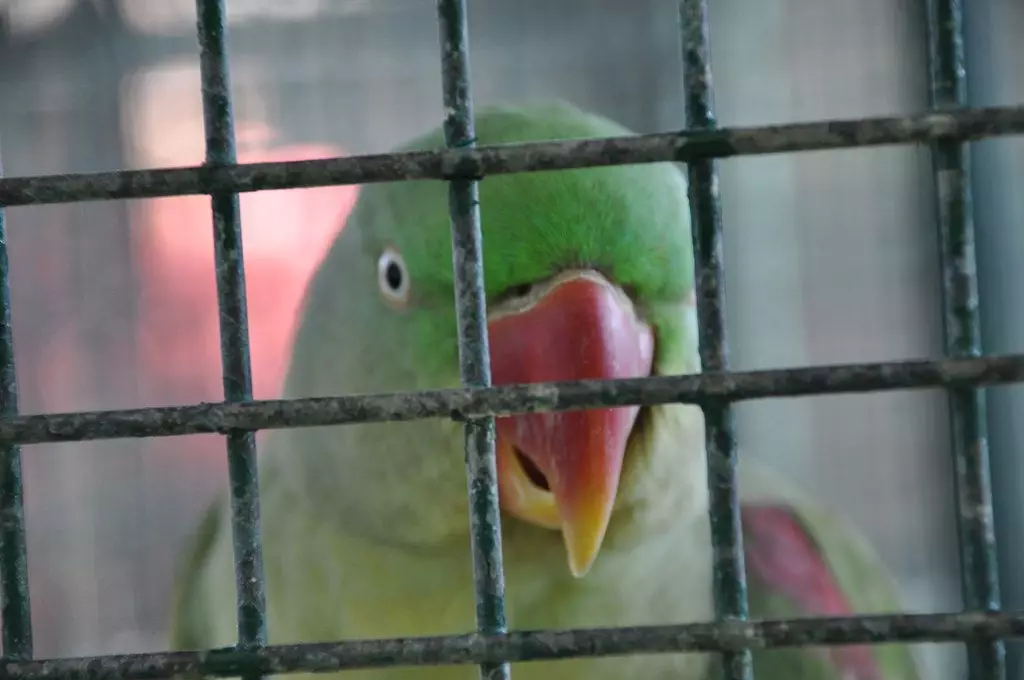Birds, much like humans, navigate a complex emotional landscape that can be disrupted by various environmental and behavioral factors. As intelligent creatures with unique personalities, they thrive on routine and familiarity. Any alterations to their usual environment—be it a new home, changes in human family dynamics, or simply shifts in the noise level outside—can trigger significant stress. Understanding the causes and signs of stress in birds is critical for their well-being and requires a proactive approach to ensure they lead happy, healthy lives.
Birds are generally creatures of habit, and deviations from their established routines can induce stress. This stress can arise from various sources. For example, moving to a new house or introducing new pets may upset their sense of stability. Additionally, environmental factors such as unexpected loud noises—construction work, thunderstorms, or even street traffic—serve as potential stressors. Changes in a bird’s light cycle, like transitioning to a darker room or altering the duration of daylight they experience, also play a role in their emotional health.
Moreover, the mere sight of unfamiliar wildlife can be a source of anxiety. Birds have inherent survival instincts, and the presence of predators—such as hawks or raccoons—can lead to distress. As guardians of these creatures, being attuned to their environment is essential; any changes, whether big or small, can contribute to significant emotional turmoil for our feathered friends.
Recognizing the Signs of Stress
Birds display stress in various ways, which can manifest both physically and behaviorally. One of the most alarming indicators is the development of stress bars—horizontal lines on their feathers that suggest underlying strain. Discovering these bars on molted feathers highlights the need for owners to scrutinize their birds’ conditions. An immediate vet consultation is advisable, as stress bars can indicate serious issues, though they do not specify what the exact stressor is.
Moreover, feather picking and self-mutilation are grave concerns. When birds feel overwhelmed or bored, they may resort to destructive behaviors. While initially sparked by stressors such as loud noises, this can escalate into severe self-harm. Immediate veterinary intervention is crucial if self-mutilation is observed.
Behavioral changes are another crucial sign of stress. Sudden aggression—whether through bites, shrieks, or lunges—can emerge seemingly overnight. Identifying the root cause is vital, and an avian veterinarian’s insight can shed light on whether the aggression stems from health issues or environmental factors.
Changes in appetite can signal distress as well; a bird that suddenly refuses to eat may require further evaluation for potential health concerns. Birds that scream incessantly or, conversely, go quiet may also hint at underlying issues requiring attention.
Intelligent and social, birds require mental stimulation to remain content. Lack of interaction can lead to boredom, translating into stress and subsequent destructive behaviors. Toys, puzzles, and interactive engagements can help mitigate these feelings of restlessness. Creating an enriching environment with stimulation tailored to the bird’s preferences is essential for its happiness.
In some cases, stress originates from personal interactions. Birds may develop stress or fear towards certain individuals due to their attire or body language. Gaining insight into these triggers can improve the bird’s adaptability and overall comfort with its environment.
Steps to Alleviate Bird Stress
As bird owners, we have a fundamental responsibility to ensure our pets are not only physically healthy but also psychologically sound. When stress is observed, modifying the bird’s environment or routine may be necessary. For instance, shifts in cage locations should be gradual, allowing the bird to acclimatize to its new setting without excessive anxiety. Establishing a sense of security is also key; if new family members or pets are introduced, ensuring gradual integration can prevent overwhelming the bird.
As part of building a trusting relationship, it is crucial to approach birds with patience and understanding. Yelling, sudden movements, or a rush to correct bad behavior can exacerbate stress. Instead, caregivers should focus on gentle interactions and reinforcing positive behavior.
Incorporating opportunities for mental and physical exercise—through out-of-cage time, interaction with toys, and other engaging activities—can significantly improve a bird’s emotional state. Consulting with veterinarians for health-related questions, behavioral advice, and stress management strategies further enhances a bird’s quality of life.
While the complexities of bird care are multifaceted, being attentive to their emotional needs is paramount. By recognizing the signs of stress, understanding potential triggers, and implementing appropriate interventions, caregivers can cultivate a nurturing environment that promotes their birds’ well-being. Investing time and effort into ensuring a stress-free atmosphere can lead to happier, healthier feathered companions in our lives.

